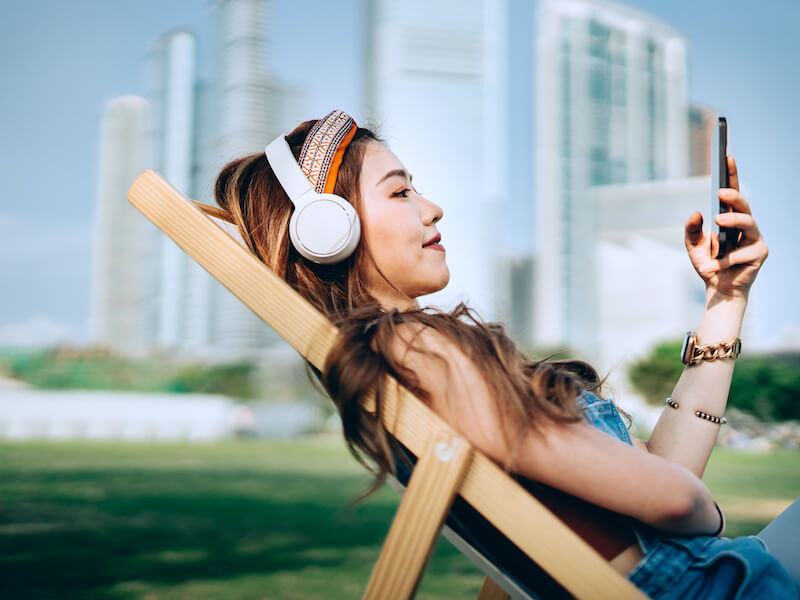
Aiden loves music. While he’s out running, he listens to Pandora, while working it’s Spotify, and he has a playlist for everything he does: cardio, cooking, gaming, you name it. His entire life has a soundtrack and it’s playing on his headphones. But the exact thing that Aiden loves, the loud, immersive music, might be causing irreversible damage to his hearing.
For your ears, there are healthy ways to listen to music and unsafe ways to listen to music. However, most of us opt for the more hazardous listening choice.
How can listening to music result in hearing loss?
Over time, loud noises can lead to deterioration of your hearing abilities. We’re used to thinking of hearing loss as a problem related to aging, but more and more research suggests that it’s really the accumulation of noise-induced damage that is the problem here and not anything inherent in the process of aging.
Younger ears that are still growing are, as it turns out, more vulnerable to noise-induced damage. And yet, younger adults are more likely to be dismissive of the long-term risks of high volume. So there’s an epidemic of younger people with hearing loss thanks, in part, to high volume headphone use.
Can you enjoy music safely?
Unlimited max volume is clearly the “dangerous” way to enjoy music. But there is a safer way to enjoy your tunes, and it usually involves turning the volume down. Here are a couple of general guidelines:
- For adults: No more than 40 hours of weekly listening on a device and keep the volume below 80dB.
- For teens and young children: You can still listen for 40 hours, but the volume should still be below 75dB.
Forty hours every week translates into about five hours and forty minutes per day. That seems like a lot, but it can go by fairly quickly. But we’re trained to monitor time our whole lives so the majority of us are pretty good at it.
Keeping track of volume is a little less user-friendly. On most smart devices, smartphones, and TVs, volume isn’t calculated in decibels. Each device has its own arbitrary scale. It could be 1-100. Or it might be 1-10. You might not have a clue how close to max volume you are or even what max volume on your device is.
How can you track the volume of your tunes?
There are some non-intrusive, simple ways to figure out just how loud the volume on your music actually is, because it’s not all that easy for us to contemplate what 80dB sounds like. Distinguishing 75 from, let’s say, 80 decibels is even more perplexing.
That’s why it’s greatly recommended you utilize one of many free noise monitoring apps. These apps, widely available for both iPhone and Android devices, will provide you with8 real-time readouts on the noises surrounding you. That way you can keep track of the dB level of your music in real-time and make adjustments. Or, while listening to music, you can also adjust your settings in your smartphone which will automatically let you know that your volume is too loud.
The volume of a garbage disposal
Generally speaking, 80 dB is about as loud as your garbage disposal or your dishwasher. So, it’s loud, but it’s not that loud. Your ears will start to take damage at volumes above this threshold so it’s an important observation.
So you’ll want to be extra mindful of those times at which you’re going beyond that volume threshold. And minimize your exposure if you do listen to music over 80dB. Perhaps listen to your favorite song at full volume instead of the whole album.
Listening to music at a higher volume can and will cause you to develop hearing issues over the long run. Hearing loss and tinnitus can be the consequence. Your decision making will be more informed the more mindful you are of when you’re going into the danger zone. And safer listening will ideally be part of those decisions.
Call us if you still have questions about the safety of your ears.
